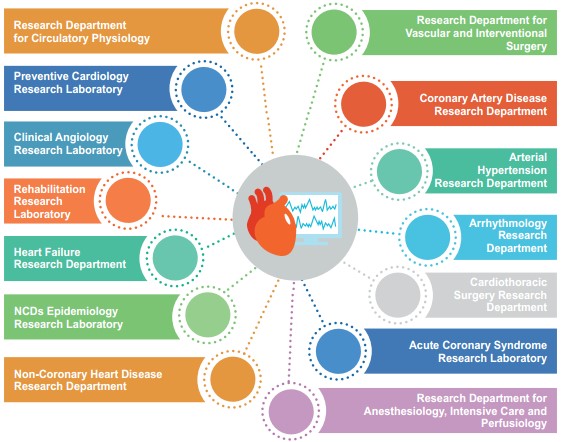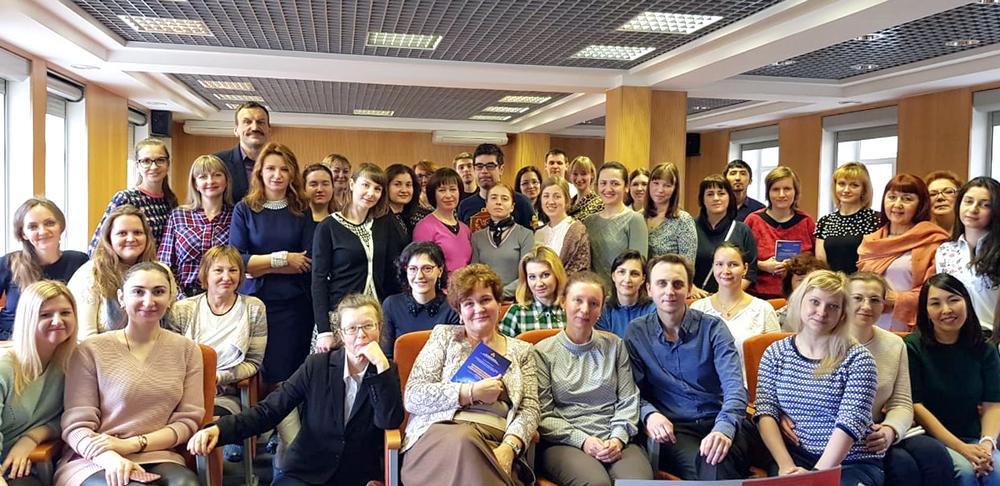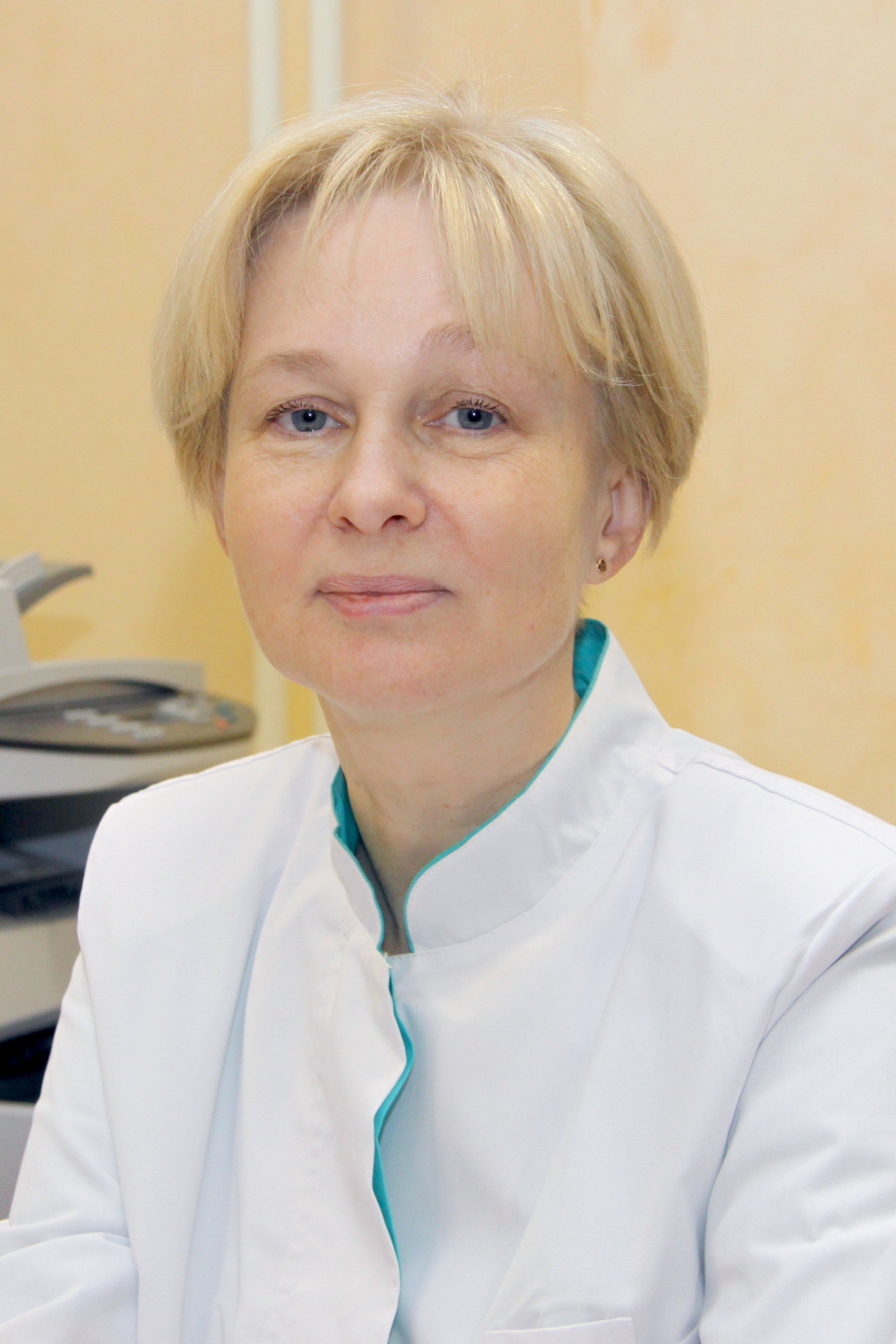Institute of Heart and Vessels
History
The Institute of Heart and Vessels established in 2009 carries on the traditions of the Research Institute of Cardiology laid down by its founder Academician Vladimir Almazov. The Heart and Vessels Institute conducts basic and applied research aimed at developing effective methods for the prevention, diagnosis and treatment of CVDs.
Guided by the principles of value-based medicine, the specialists of the Institute provide scientific and methodological guidance for specialized and high-tech medical care and contribute to the training for research and medical personnel within the system of postgraduate education.
Major objectives
- Studying the pathogenetic mechanisms underlying the development of cardiovascular disease.
- Identifying the risk factors affecting the development, prediction of the course and the effectiveness of treatment for cardiac disease.
- Creating a personalized approach by introducing modern technologies of cell therapy to increase the effectiveness of treatment for cardiovascular disease.
- Developing new surgical treatments and improving the existing rehabilitation programs for patients after cardiac surgery.
- Improving the scientific basis for managing the specialized high-tech care, creating information support systems for quality control of medical and preventive care based on advanced information and telemedicine technologies.
CO2-injector Angiodroid for endovascular procedures
Almazov Centre specialists took part in the 5th China Vascular Congress
Round table on CVD in pandemic with Almazov Centre specialists
A rare concurrent cardiac surgery performed at Almazov Centre
The exhibition About Sleep wins the award of World Sleep Day 2020 as an outstanding social project
A unique technology of nitric oxide synthesis to save lives
New technologies for the implantation of cardiac pacing systems
Comparison of cardiovascular mortality in Russia and Norway
Almazov Centre specialist attends WHO European Conference on Screening
Focus on minimally invasive cardiovascular surgery
Researcher of the Department for Vascular and Interventional Surgery takes part in LINC 2020
Almazov Centre is developing a new method to diagnose and treat pulmonary hypertension
Almazov Centre has launched clinical trials of a nitric oxide device made in Russia
A specialist from Almazov Centre takes part in ASIA PCR 2019
Specialists from Almazov Centre take part in two major events for cardiovascular surgeons
Novel approaches for treatment of bradyarrhythmias and conduction disorders: His bundle pacing
Almazov Centre holds eSATIS Investigator Meeting
Doctors of Almazov Centre take part in the World-Leading Course EuroPCR 2019
Sudden death issue explored at the 9th international scientific congress Sport, People and Health
European-level vascular surgery
Arrhythmologists from Almazov Centre take part in EHRA 2019
More than 120 redo cardiac surgeries performed at Almazov Centre in 2018
New-generation artificial heart implanted for the first time at the Almazov Centre
Vascular surgeons of the Almazov Centre perform live broadcast surgeries at TREC 2019
Russian scientists attended the 28th European Meeting on Hypertension and Cardiovascular Protection
The Lancet presents the results of the May Measurement Month 2017
EuroPCR Course takes place from May 22 to 25 in France
Specialists from the Almazov Centre take part in the International Congress of ESCVS
Specialists from the Almazov Centre take part in the European Heart Rhythm Congress
The Almazov Centre took part in the V Russian Congress on Pulmonary Hypertenison
Structure

- Research Department for Circulatory Physiology
— Electrocardiology Research Laboratory
— Ultrasound Research Laboratory
— Cardiopulmonary Testing Research Laboratory
- Heart Failure Research Department
— Research Laboratory for Heart Failure
— Research Laboratory for High-Tech Treatment Methods
- Arterial Hypertension Research Department
— Research Laboratory for AH Pathogenesis and Treatment
— Somnology Group
- Non-Coronary Heart Disease Research Department
— Cardiomyopathy Research Laboratory
— Connective Tissue Dysplasia Research Laboratory
- Cardiothoracic Surgery Research Department
— Research Laboratory for Thoracic Surgery
— Research Laboratory for Surgery of Heart Defects and Coronary Artery Disease
- Research Department for Vascular and Interventional Surgery
— Vascular Surgery Research Laboratory
— Interventional Surgery Research Laboratory
- Research Department for Anesthesiology, Intensive Care and Perfusiology
— Research Laboratory for Anesthesiology and Intensive Care
- Arrhythmology Research Department
— Interventional Arrhythmology Research Laboratory
— Clinical Arrhythmology Research Laboratory
— Neuromodulation Research Laboratory
- Acute Coronary Syndrome Research Laboratory
- Cardiac Angiology Research Department
Major technologies
Thanks to the integration of science, clinic and education, the Institute of Heart and Vessels implements the basic principles of translational medicine, making it possible to effectively develop and introduce innovative methods of diagnosis and treatment:
- Continuous ECG monitoring using implanted cardiac monitors and remote telemetry for timely identification of the cause of cryptogenic stroke or life-threatening arrhythmias.
- Technologies for not only invasive, but also non-invasive electrophysiological mapping to increase the effectiveness of interventional methods for the treatment of ventricular tachyarrhythmias and atrial fibrillation.
- Multipolar left ventricular pacing technology to optimize response to cardiac resynchronization therapy for the treatment of chronic heart failure.
- Technology of personalized radiofrequency ablation for persistent atrial fibrillation with the data of multicontact basket-mapping.
- Cryoballoon technologies and multielectrode-phased radiofrequency pulmonary vein isolation for the treatment of paroxysmal and persistent atrial fibrillation.
Cardiac surgery methods are being improved using:
- Technologies for minimally invasive mitral and aortic valve surgery.
- Hybrid and valve-sparing surgery for ascending aorta aneurysms using arterial switching (debranching) of the main branches of the aortic arch.
- Hybrid surgical technique for thoracoabdominal aortic dissection.
- Authentic developments for the treatment of primary cardiomyopathies and, in particular, hypertrophic cardiomyopathy.
- Technologies for distant pre- and post-conditioning to reduce the risk of intraoperative injury and for myocardial protection.
Major achievements
- The specialists from the Heart and Vessels Institute were involved to create a project for integrative care to patients with chronic heart failure to improve the quality of care provided, ensure its continuity and reduce mortality and the rate of readmissions associated with chronic heart failure.
- The methods of cardiac surgery are being improved using authentic developments for the treatment of primary cardiomyopathies, in particular, hypertrophic cardiomyopathy.
- Based on a quantitative assessment of the rehabilitation potential, the technology of the personalized program for stage 2 cardiac rehabilitation of patients with coronary artery disease after coronary artery bypass grafting was introduced.
- As part of improving methods of providing care to patients with pulmonary hypertension, the Institute's specialists are widely introducing technologies for surgical and interventional treatment of chronic thromboembolic pulmonary hypertension. It has been shown that balloon angioplasty of the pulmonary artery has a higher hemodynamic efficiency than the previously used drug therapy.
As part of the state assignment, the specialists of the Institute are working on the following research topics:
- Search for mechanisms of non-communicable diseases in accelerated vascular aging and targets for slowing down this process (supervised by A. Konradi).
- Risk stratification, routing, selection of the optimal treatment strategy and early prediction of outcomes in patients with cardiac emergencies based on decision support systems (supervised by E. Shlyakhto).
- Preclinical study of a new bare-metal balloon-expandable stent with delivery system for the treatment of chronic DeBakey type III aortic dissection (supervised by M. Chernyavsky).
- Pathogenetic significance of sleep disorders in the development of cognitive impairments and emotional-volitional disorders in humans (supervised by Yu. Sviryaev).
- Development of personalized approaches to assessing the risk of thrombosis and the effect of antithrombotic therapy in patients with cardiovascular complications and in programs of assisted reproductive technologies (ART) (supervised by M. Karpenko).
- Creation of technologies to diagnose and evaluate the effectiveness of treatment of socially significant diseases using the method of multicomponent exhaled breath microanalysis (supervised by A. Berezina).
- Study of the autonomic regulation of blood circulation and development of diagnostic and treatment methods for cardiovascular diseases based on the impact on the autonomic nervous system (supervised by E. Shlyakhto).
- Molecular genetic mechanisms of non-communicable diseases of cardiac remodeling and prognostic markers of CHF in patients with postinfarction cardiosclerosis (supervised by M. Sitnikova).
- Valvular calcification: the search for new targets for personalized therapeutic interventions (supervised by M. Gordeev).
The specialists of the Institute conduct research as part of grants from the Russian Science Foundation, the Russian Foundation for Basic Research and presidential grants.
- Predictive modeling using big data analysis based on a value-based approach in the diagnosis and treatment of cardiovascular disease (supervised by A. Konradi).
- Structural and functional brain changes in patients with chronic insomnia and their relationship with molecular markers of the nervous system function and cardiovascular risk factors (supervised by L. Korostovtseva).
- Personalized therapy for cardiovascular risk reduction in obesity and type 2 diabetes patients (supervised by E. Shlyakhto).
- Personalized 3D model for predicting the effectiveness of cardiac resynchronization therapy based on a combination of data on structural myocardial changes, electrical dyssynchrony and anatomy of the cardiac venous system (supervised by S. Zubarev).
- Method for studying neurogenic regulation of the pulmonary circulation and remodeling of the pulmonary artery and substantiation of a new method for treating pulmonary hypertension by selective effect on neural elements (supervised by E. Mikhailov).
- Pathogenetic substantiation of the role of circulating calcification markers in the development of aortic stenosis (supervised by O. Irtyuga).
- Personalized computer model of electrotherapy in patients at risk of sudden death and with heart failure (supervised by T. Lyubimtseva).
- Development of personalized approaches to the treatment of arterial hypertension, taking into account molecular genetic and cytokine markers, neurogenic effects, organ damage and metabolic disorders (supervised by A. Konradi).
- Cellular mechanisms of the ascending aortic and aortic valve diseases (supervised by A. Malashicheva).
- Neurophysiological mechanisms of high sleep reactivity to stress in chronic insomnia (supervised by Yu. Sviryaev).
- Methods for analyzing unstructured big data to develop a system for assessing the prognosis for the recovery of integrative brain function and create treatment methods in conditions of impaired consciousness – a combination of loss and new pathological integration of the body (supervised by E. Kondratyeva).
- Investigation of the excitation of the human myocardium in chronic heart failure under personalized mathematical models (supervised by D. Lebedev).
- Molecular and genetic mechanisms of cardiovascular calcification (supervised by A. Malashicheva).
- Investigation of the mechanisms of impaired skeletal muscle regeneration and pathological replacement of functional muscle tissue with adipose tissue (supervised by R. Dmitrieva).
- Clinical and prognostic significance of the dynamics of myocardial damage markers after radiofrequency and cryoablation for cardiac arrhythmias in children and adolescents (supervised by R. Tatarsky).
- Effect of denervation in the trunk and distal branches of the renal arteries on the vascular wall as well as the hemodynamics of the pulmonary circulation (supervised by A. Alieva).
- Methods to improve the quality of medical care by using information technology and machine learning algorithms for the development of personalized approaches to the management of patients with atrial fibrillation (supervised by E. Mikhailov).

The specialists of the Institute are actively engaged as faculty members at the Medical Education Institute of Almazov Centre.
- Department of Cardiovascular Surgery (headed by Prof. Mikhail Gordeev)
The Department participates in the implementation of basic professional education programs and continuing professional education programs in the following disciplines: Cardiovascular Surgery, Vascular Surgery, X-Ray Endovascular Diagnosis and Treatment, Common Principles and Treatment Methods for Cardiac Patients, Arrhythmology and more.
- Department of Internal Medicine (headed by Associate Professor Galina Salogub)
The goal of the Department is to train highly qualified specialists in various fields of therapy in the following specialties: hematology, cardiology, exercise therapy and sports medicine, general internal medicine, rheumatology, functional diagnostic testing, endocrinology.
- Department of Public Healthcare (headed by Professor Alexandra Konradi)
The Department offers a graduate residency program in Public Health. Beyond that, the Department is actively involved in the implementation of continuing education programs. The Department actively develops distance learning opportunities, participates in grant and publication activities, in interuniversity interaction, carries out expert activities in the field of medical education in the Russian Health Ministry, the National Medical Chamber and Healthcare Professional Competence Council.







